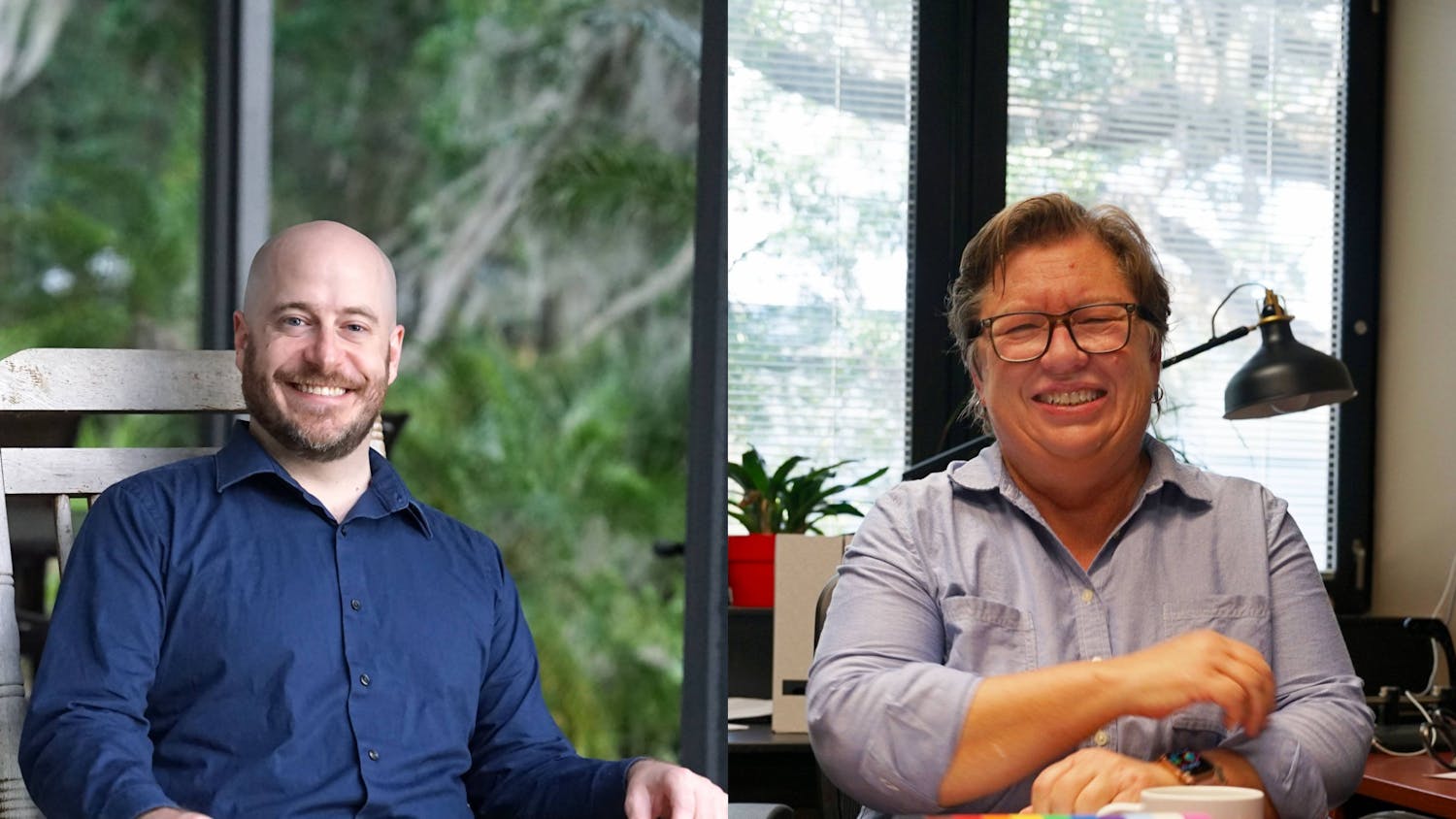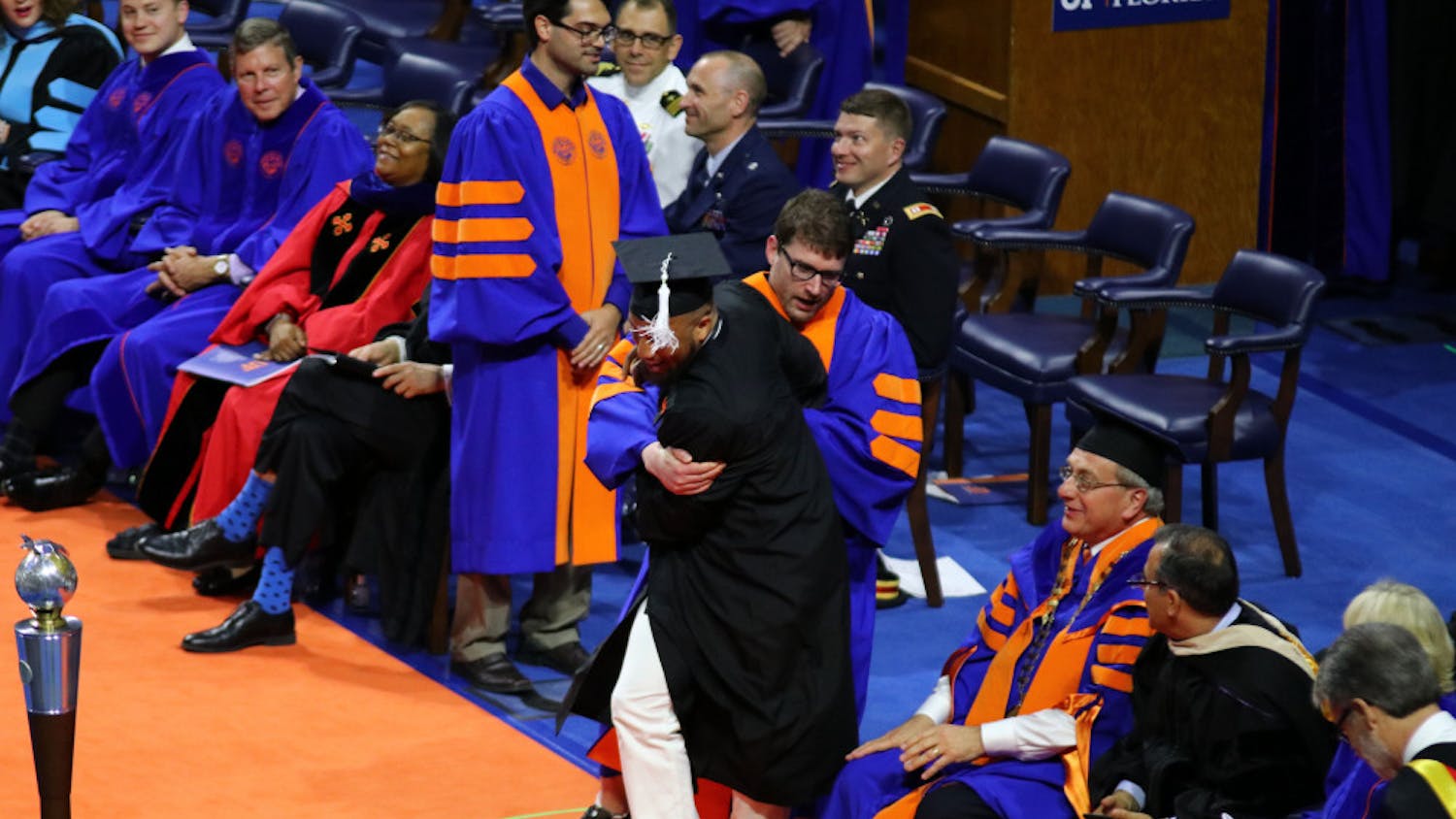Editor's Note: This is the third installment in a four-part series. For the first two parts of the series, please see the links below.
The Grind
Every day at 6:30 a.m., a small, compact clock-radio breaks the stillness of Mormon missionaries James Tate and Marques Schroeder's two-bedroom apartment, announcing the arrival of a new day. Rolling out of his inflated mattress, the groggy Tate takes four to five steps toward the door to the hallway. Schroeder follows.
Flipping the lights, they trudge toward the living room, which has basic furniture that clashes with the white table filled with portraits of Jesus, scripture and a cluster of hand-scribbled notes.
As they mount the staircase and cautiously thump down the hallway, they briefly confer on who should take the first shower, which falls to Tate. After rinsing off the sweat and build-up from the prior day's work, he dries off and makes his way to the walk-in closet located in his room.
With a slight turn to the right and a flick of the light switch, Tate's wardrobe options reveal themselves to him. The parade of white shirts and dark slacks do little for innovation but serve as a daily reminder of the simple lifestyle he must lead.
After dressing, his eyes fall upon the tie rack. His only shot at splicing some creativity into the outfit, Tate goes with a purple tie, nonchalantly fluttering it into the same knot he has tied for the past 10 years.
Schroeder, whose wardrobe nearly set him back $1,000, does likewise.
"He paid how much for that?" asked Tate, who only spent between $500 and $600 on his missionary clothes. "He got rocked."
The tandem spend the next two hours studying scripture. After their spiritual reflection, they strap on their helmets and hop on their bicycles for the mile-long journey to the UF campus.
Once they reach their destination, they go around preaching the message of their faith. Many will hear it, very few will listen.
For those that do, the missionaries set up teaching lessons where they introduce the tenants of their faith.
"A lot of people think we're Amish or that we live in the mountains with our wives," Schroeder said. "Some of the stuff that they come up with is actually quite hilarious."
Although they are more than willing to hear the missionaries' explanations, most quickly balk at an invitation to worship at a Sunday service or set up a teaching appointment.
With the exception of the hour-long breaks they take for lunch and dinner, they do this until the sun fizzles out of the sky.
A Carnation of Hope
Darrell Janson views success a lot differently than most people.
Although the specks of gray that frost his temples illustrate the years of yore, Janson can firmly recall his youthful years as a Mormon missionary in Germany. Full of energy and zeal, he couldn't wait to spread his church's message in a far away land.
There was just one problem - nobody was converting. In his first five months in Germany, he couldn't get one person into the baptism font.
"It was incredibly frustrating; I couldn't help but think that I was doing something wrong," he said. "You get humbled pretty quickly."
Eventually, after hundreds of refusals, there was an answer. An elderly woman named Charlotta became intrigued at what the missionaries had to offer. After a few months of investigating, she agreed to be baptized.
When she emerged from the water, her eyes locked on a white carnation in the distance. She turned to the young Janson and pointed at the flower, excitement radiating from her face.
"Now I'm as pure and clean as that," she beamed.
Although he would go on to baptize five more people while in Germany, that first one holds a special place in Janson's heart.
"I could've just had that one moment of joy and it would've been more than enough for the two years that I was there," he said. "That is the definition of true success."
According to the National Council of Churches, the Mormon Church is the second-fastest growing church in the United States and Canada, only falling behind the Jehovah's Witnesses.
Although high birth rates contribute to the figure, the steady increase throughout the years can be attributed to the Mormon missionaries' efforts to spread their message across the world. In 2008 alone, more than 260,000 people were baptized into the church, according to statistics provided by the church.
One of the religion's main selling points, according to Janson, who now serves as a bishop and a coordinator of Latter Day Saints seminaries and institutes, deals with the church's steadfast stance of moral issues, particularly those relating to the family structure.
"We don't bend with the wind of social change based on what society believes at the time," he said. "If it's of God, then it's not going to be something of this world."
Another key to the church's appeal, he insists, is based on the high example that missionaries set when they go out into the public sphere
"People see their character, their morals and the way they carry themselves and think to themselves, ‘That's what I want to be,'" he said. "You can see their happiness, but to understand it, you have to immerse yourself in it."
Tate and Schroeder, Janson believes, serve as those prime examples.
"They're both hard workers, caring, compassionate and have great relationship skills," he said. "If they have any personal struggles, they keep it to themselves. They are incredibly focused missionaries."
He then added, "They are successful missionaries."
For the first part, click here.
For the second part, click here.
For the fourth part, click here.





